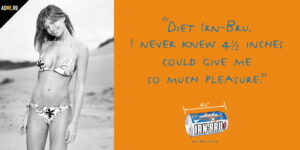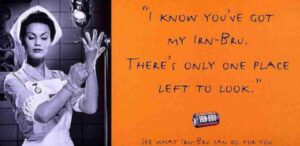I have discovered the art of sleeping on demand. I am not sure if it is the same as some sort of meditation but basically whenever the urge takes me, I can decide to go to sleep for a while. It can be as little as two or three minutes or occasionally I might really go for it and sleep for a couple of hours as I did on Monday.
With all the hassle of getting ready for an All Ireland semi final over the last ten days or so culminating in last weekend, with disrupted sleep on Friday, Saturday and Sunday night I had booked myself off work on Monday. Purely for the purposes of sleeping you understand. Boy was I looking forward to it.
The reasons for lack of sleep were not a bad conscience or anything like that. I have nothing in particular to lie awake wondering about or worrying about. The days of spending half my nighttime thinking tossing and turning about some work problem at the dreaded University are long gone. I remember at one stage years back the doctor gave me a course of sleeping tablets because I complained that I couldn’t sleep.
All I wanted to do was go to bed sleep and wake up. But then I’ve a perverse sleeper. I like to wake up in the middle of the night, look at the clock and know that I have another few hours in bed. The effect of the sleeping tablet was to make me sleep and miss out on this little pleasure. After the course of tablets was completed I didn’t return for another dose.
Anyhow back to my Scooby sleeping. . . I will consciously totally switch off. Beckett in Murphy describes how his protagonist used to work himself into a reverie in his rocking chair tied to it with seven scarves. In At Swim Two Birds the unnamed narrator likewise was able to retire into the recesses of his own mind and join the cast of larger than life characters that he brought to life in his book.
For me, in the last two weeks, learning to partially control this state I have found that If I focus on a particular thing, say a piece of work or a conundrum related to say a player, I will often come around with the problem solved or at least some ideas. It really is bizarre. I have taken my blood pressure after and it is quite low so it also has therapeutic qualities.
The problem in replicating this in nighttime is that there is someone else in the bed – Angela – and sometimes two others. My daughter is highly obnoxious during the night and kicks and nips in her sleep to gain maximum bedspace. My son is a timid cub in that he puts up with all of this in the interests of managing his insecurity and I haven’t the will to kick him out.
So on Monday past, I got up as usual to get the kids out to school knowing that I would have the decadent pleasure of as much sleep as I liked without the guilt of thinking I should be working. There was also the pleasure of knowing that I had a choice of places to execute this plan. I considered the hammock in the back garden under a quilt but it was raining. Someday though I will sleep in the rain my face exposed to the rain with a waterproof sheet above a quilt keeping me dry and warm. It pleases me even writing about it now.
We used to have a double bed upstairs that one of the lads that lived with me part bought so he could get some action with his girlfriend. I think it was well and truly tested to the max. It had the distinction of being the most comfortable bed in the house and I often would go in there, collapse face down and sleep waking later in a pool of dribble. I did that one time in the Queen’s library as a student opposite a girl I quite fancied. I woke in a pool of saliva as she looked on in pity. I think she may have been interested until that point. We shall never know. I moved floors in the library shortly after.
When Sorcha moved out of her cot, I went to IKEA and bought a set of bunks that I assembled. And guess what, they are mega comfortable too. Not so the boys bed which is like sleeping on an Iron Maiden or Cáit’s which is like grandma’s feather bed.
So having weighed up the bed options, including my own normal bed which is just OK, I decided that down stairs would be better. The main sofa is deceptively comfortable although Hub the black labradog is liable to bunk in wet nose and all, plus then she’s liable to start licking her bits which is detrimental to good sleep. There is the armchair for a drooling oulboy type sleep all belly out, shirt opened type stuff. Or the easy chairs in the kitchen.
There are three potentials in the office, the main desk chair, reclining leather, capable of a swing round; another IKEA recliner – POANG I think they call it whatever sort of fuckin name that is I dunno.
But the winner was. . . the sofa bed with its excellent two pillows. I don’t have to unfurl it, just assume the foetal position, close the door some music on and away we go, into the amnion of my own quiet to borrow a phrase. . . . . . . Imagine my consternation when I woke suddenly and there sitting in the POANG was my friend Richard, laughing at the shape of me asleep.
I sat up tousled, at least I hadn’t been drooling, and shot the breeze for a while. After he left I made a cup of tea and busied myself for ten minutes or so. Then it dawned on me, I had nothing to do. So, I settled my self back down for another go. And I slept, and slept and slept. That solved that problem. It was different from my usual short bursts but by God I enjoyed it. Having planned it, conceived it and executed it, I love it when a plan comes together.
 I spent ten months in Stirling in Scotland doing a Masters degree after I finished at Queen’s in Belfast. Among the many positives from the course was an introduction to Irn Bru. It wasn’t on the course syllabus I should add, more on the morning after agenda.
I spent ten months in Stirling in Scotland doing a Masters degree after I finished at Queen’s in Belfast. Among the many positives from the course was an introduction to Irn Bru. It wasn’t on the course syllabus I should add, more on the morning after agenda. I found myself that it was a surprisingly good drink for these purposes. Think tongue painted with liquid sugar, and you’ll get the idea.
I found myself that it was a surprisingly good drink for these purposes. Think tongue painted with liquid sugar, and you’ll get the idea. But first they did what all businesses should do before expanding and hitting a new market. They did a lot of market research on the ground with a key target audience. Young people. They found that the ‘Made in Scotland, From Girders’ didn’t translate across into the rest of Britain.
But first they did what all businesses should do before expanding and hitting a new market. They did a lot of market research on the ground with a key target audience. Young people. They found that the ‘Made in Scotland, From Girders’ didn’t translate across into the rest of Britain.